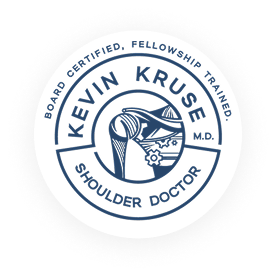How Colder Weather Affects Your Shoulder Pain
Did you know that January is the coldest month for the Dallas area? Many people say that cold weather brings out the worst of their shoulder pain.
What is behind this mysterious relationship between the weather and joint pain? There are several reasons that the cold weather can aggravate your shoulder pain.
Cold Weather and Barometric Pressure
It is very possible to feel changes in the barometric pressure within your joints. Cold weather is typically preceded by lower atmospheric pressure. This change in air pressure causes tendons, muscles, and tissues to expand or contract, which can result in pain or discomfort. Additionally, our joints have a balloon-like structure called a joint capsule, which keeps the joint separated from the surrounding soft tissues. These mini air-balloons react to changes in pressure contributing to the increase in joint pain.
Cold Weather and Exposed Nerves
Cartilage is a white smooth cushion in our joints that acts like the shock absorber. It does not have nerve endings. However, the underlying bone has a lot of nerve endings. When the cartilage is weakened or worn out, the nerves in the bone beneath the cartilage can become exposed to fluid and pressure. These newly-exposed nerves can be especially sensitive to changes in air pressure and cold weather. As a result, they can transmit sensations of pain from the joint.
Cold Weather and Joint Fluid
Synovial fluid is the thick liquid that lubricates your joints and keeps them moving smoothly. It is found in all of your joints – including your shoulder. Lower temperatures may cause your synovial fluid to thicken, reducing its mobility around the joint and affecting its function. The less freely the joint fluid flows, the more likely you are to experience pain during those cold winter months.
Cold Weather and Inactivity
These colder months often make us bundle up and stay indoors. Lack of regular movement can lead to a weakening of the muscles and tendons surrounding your shoulder. These weakened structures are less able to provide the support your shoulder needs. The lack of adequate muscle function causes pain at the tendon attachments leading to pain around the joint.
Although the cold may affect your shoulder pain, there are a few things you can do to help reduce the discomfort. Taking warm showers, dressing warmly when outdoors, using a heating pad, and staying active can help you fight back against the cold and its effect on your shoulder pain.
Dr. Kevin Kruse is a board-certified, fellowship-trained, orthopedic surgeon specializing in Shoulder injuries and arthroscopic Shoulder surgery in North Texas.

